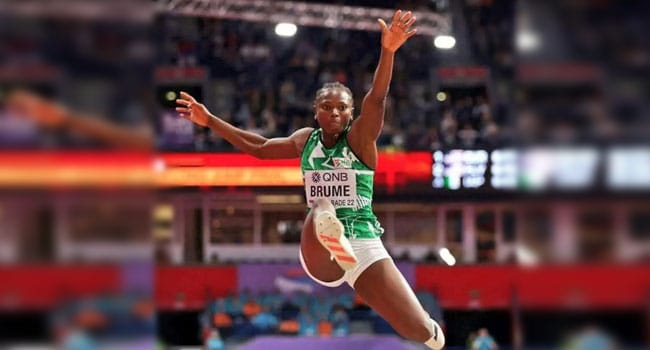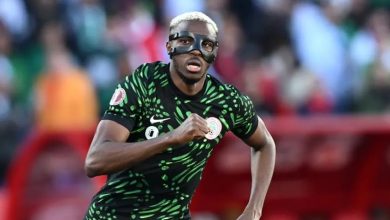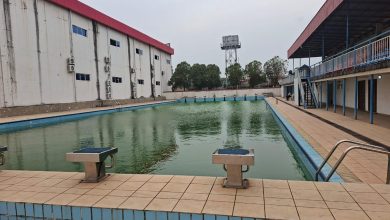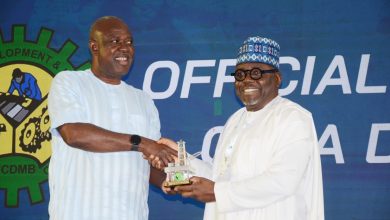Team Nigeria Begins Chase For Medals, World Championship Entry Standards
As 22nd African Athletics Championship starts Wednesday in Mauritius

Heptathlete Kemi Francis will open Nigeria’s chase for African Championship medals when she takes to the track of the Côte d’Or National Sports Complex in St Pierre, Mauritius Wednesday morning for the 100m hurdles in the women’s Heptathlon.
Not ranked as the favourite for the event, the 29 year old will be hoping to become the fifth Nigerian woman to mount the podium as African champion in the event after the quartet of Bella Bell-Gam (1979 as Penthatlon), Patience Itanyi (1998), Patience Okoro (2008) and Uhunoma Osazuwa who set a new 6,153 points championship record six years ago in Durban, South Africa.
In the blue ribband event, Nigeria will be seeking to re-establish a dominance that saw her athletes win nine of the 14 gold medals on offer between 1984 and 2008 in the 100m for men and 12 of the 19 in the women’s version between 1979 and 2014.
Nigeria last won the gold medal in the men’s 100m in 2008 in Addis Ababa, Ethiopia where Olusoji Fasuba completed his hat-trick of wins to become the first and so far the only African man to win the blue ribband gold three consecutive times.
For the women, Blessing Okagbare ran a then 11.00s championship record to win Nigeria’s 12th and final gold medal in the event in 2014.
For Raymond Ekevwo, the reigning African Games 100m champion who is spearheading Nigeria’s chase for the ultimate title in the event, this is the perfect opportunity to return Nigeria as African champion 12 years after Fasuba last did.
Junior international, Praise Ofokwu and Tima Godless will have the very ardous task of winning Nigeria’s 13th gold medal in the history of the championship.
In the sprint hurdles, Tobi Amusan is the overwhelming favourite to retain the title she first won four years ago at the 21st edition of the Championship in Asaba, Delta state.
The 25 year old’s major challenge will be her compatriot, Glory Alozie’s 12.77s championship record set in Dakar, Senegal in 1998.
Nigeria has dominated the women’s sprint hurdles scene at the championship, winning 11 of the 21 gold medals offered so far.
Like in the 100m hurdles, Nigeria has also been the dominant nation in the jumps, especially the women’s long jump where they have won 11 of the 21 competed for so far including the five from 2010.
Olympics, World and Commonwealth Games medallist, Ese Brume will stand as the favourite to win Nigeria’s 12th gold and her fourth straight title in the event.
For the men, Nigeria has lost her superiority in the event and has not mounted the podium as African champion since Obinna Eregbu won the eighth and final gold medal for the country in 1993.
Nigeria dominated the event between 1979 and 1993, winning eight of the nine gold medals competed for including seven straight wins between 1984 and 1993.
Team Nigeria will not only be seeking podium appearances as some of the home-based athletes who made the team will also be seeking to make the qualification standard for the World Athletics Championship scheduled to hold in Oregon, USA.
Samuel Onikeku, the technical director of the Athletics Federation of Nigeria, AFN says the team will also be seeking to make the cut in the relays and book Nigeria’s ticket to Oregon.
‘Team Nigeria is not only going to Mauritius to fight for podium appearances. We are also going to book our tickets to World Athletics’ flagship event, the World Championship. As at today, only the women’s 4x100m and the Mixed Relay teams have qualified. We want to fight to improve on our 16th place for the two and also ensure we book our tickets in the other three viz the men’s 4x100m and 4x400m as well as the women’s 4x400m,’ said Onikeku.
The technical director also revealed some of the athletes will be seeking to make the qualification standard in their individual events.
Nigeria finished third on the medal table four years ago in Asaba with nine gold, five silver and six bronze medals behind Kenya (11,6,2) and South Africa (9,14,8).
Nigeria is however the most successful nation in the history of the championship, winning 155 gold, 122 silver and 91 bronze medals, followed by Kenya (144, 129, 109) and South Africa (129,114, 96).




